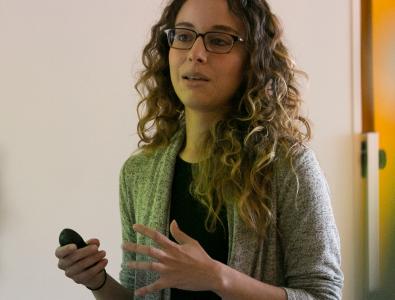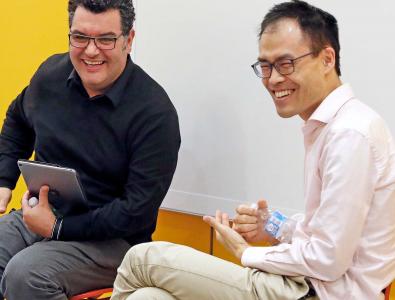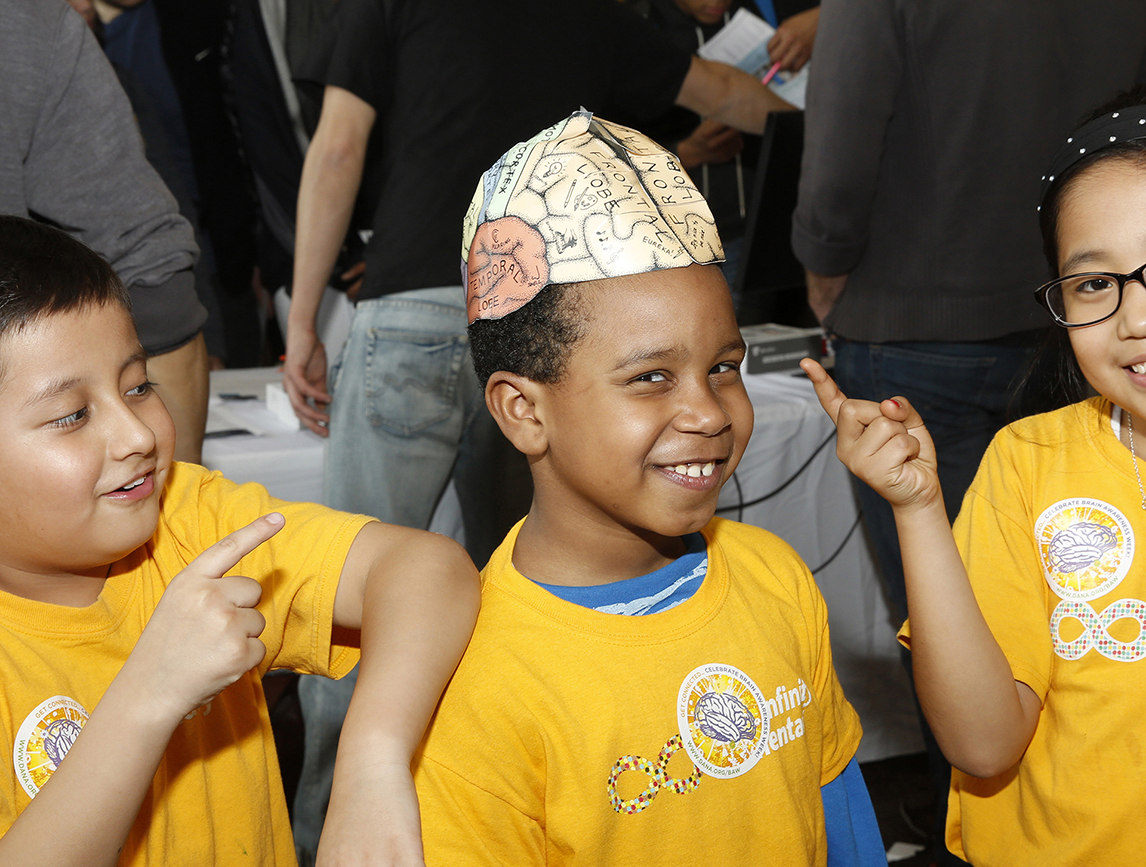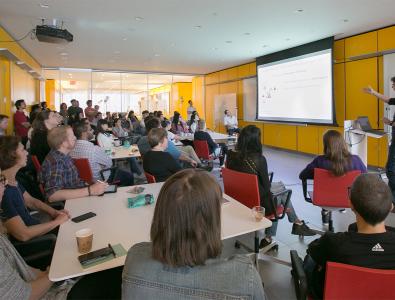Early-career Researchers
The future of neuroscience begins here
At Columbia’s Zuckerman Institute, we are committed to fostering the next generation of researchers studying the mind, brain and behavior. We strive to create a training environment to meet the specific needs of graduate students and postdoctoral researchers today. Research talks by and for early-career researchers provide opportunities to communicate science and to find future collaborators. Professional development courses focus on the skills and knowledge that early career researchers need to get them to whatever career stage they target next. Formal and informal opportunities connect graduate students and postdoctoral researchers to faculty around the Institute. In addition to career-stage specific programs, researchers can get insights and hands-on training with the support of scientific platforms and pre-award specialists. To explore interests outside the direct area of research, graduate students and postdoctoral researchers can attend events and programs hosted by our artists-in-residence and find opportunities to connect with wide audiences through the Institute's Public Programs.
These programs complement and extend the training that early-career researchers receive inside the labs. The result is that scientists at all levels of training have access to support and training from within their lab, from their peers around the Institute, and from the Institute programmatic and scientific staff. Early career scientists are supported for success during their time at the Institute and prepared for success after it.
Featured Programs
Scientific Platforms
-
Advanced Instrumentation
Inventing one-of-a-kind tools that spur new scientific experiments
-
Cellular Imaging
Developing new imaging technologies to illuminate the secret lives of cells
-
Custom Genetic Access Services
Game-changing tools for investigating brain cell activity
-
Flow Cytometry
Deciphering the brain, one cell at a time
-
Magnetic Resonance Imaging
Scanning the brain and body in health and sickness
-
Research Computing
Providing robust computation and data storage solutions for labs
-
Virology
Building molecular tools to map and explore the nervous system
Artist-in-Residence Programs
-
Alan Kanzer Artist-in-Residence Shahzia Sikander
Fostering creative pursuit in neuroscience and the arts
-
Jazz Artist-in-Residence Anat Cohen
At the intersection of music and the mind
-
Alan Kanzer Writer-in-Residence Nicole Krauss
An exploration of science through narrative and storytelling



